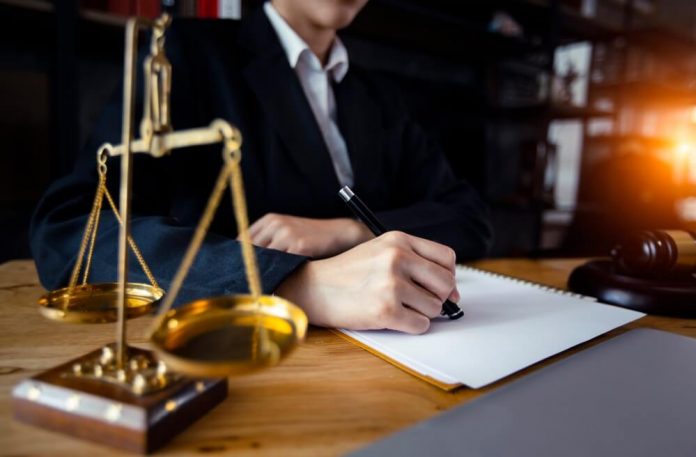Table of Contents
Profession “lawyer”
A little history
The origin of this branch of knowledge occurred in Ancient Rome. It was here that the first representatives of legal norms appeared – patrons. Before them, dispute resolution and judicial activity were indirect concepts and lay on the shoulders of the priests. Since the appearance of cartridges, legal knowledge has developed rapidly. At first, the right to make decisions rested on the shoulders of emperors, kings – heads of state. This industry developed, both defenders and prosecutors appeared. Courts and judicial systems were born. Over time, jurisprudence has developed into a broad branch. The basis for the laws was religion, it was the commandments from the Bible that became the first laws. They introduced the rules that humanity follows to this day. Nowadays, the law is a broad branch of knowledge and opportunities. It includes the entire judicial system, knowledge of laws and legal norms, and ways to monitor their strict implementation by both private individuals and organized structures.
Top 10 key skills of a lawyer
Public speaking
Speech is a key tool that a lawyer uses in his professional activity. His business card, thanks to which the lawyer presents himself, demonstrates his level of intelligence. What kind of speech should it be:
- informative,
- cultured, competent,
- clear and concise,
- logical,
- convincing,
- filled, but not oversaturated with terminology,
- expressive.
In addition to the fact that a lawyer must be able to speak, he is obliged to listen and hear clients, opponents, judges.
Writing skills
The ability to, clearly, accurately and easily present information on paper is one of the most important skills of a professional. No less (if not more) important is to try to make the text understood not only by colleagues but also by customers. In most cases, the right regulation is equal to hundreds of pages of difficult-to-understand text. And the lawyer must bring the essence to the client, judges, jurors, experts, other participants in the case and the process.
Legal specialists should:
- To study the stylistic and mechanical aspects of writing.
- Avoid grammatical errors.
- Get the skills of writing concise and convincing prose.
- Gain experience in drafting legal documents: petitions, contracts, resolutions, memoranda, etc.
Ability to work with the client
In the client-oriented legal industry, honest and qualified work with clients is crucial for the success of a specialist and a firm. A lawyer should have experience working with clients, as well as developed communication skills (oral and written). For example, this law firm Statelawgroup.com.au will help you deal with any case. They provide a specialist in the field of your problem and provide the first consultation for free.
The ability to search and analyze, apply logic
Lawyers have to deal with a huge amount of complex information, in most cases written in a specific language. To work effectively with it, a lawyer simply needs analytical and logical skills:
- Consideration of complex written documents, drawing conclusions, and establishing links between legal entities.
- Development of logical thinking.
- Structuring and evaluating arguments.
- The use of inductive and deductive methods in working on conclusions.
Study of judicial practice, legal research
In the broadest sense, it is the ability to analyze a legal problem and find possible ways to solve it after studying legislative acts, case law, judicial opinions, charters, regulations, and other information.
A lawyer must master:
- The main techniques of information retrieval.
- Skills of determining the actual circumstances of the case.
- The art of interpretation, analysis (evaluation) of the legal qualification of the case.
- The skill of determining the applicable rule of law references to laws.
- The ability to work with databases (search engines) of judicial instances, reference systems, etc.
Technologies
Technology is rapidly changing the legal landscape. Today it is an integral part of legal services. Therefore, a professional should:
- Quickly understand the software that optimizes the work of lawyers (presentations, search databases, etc.);
- Know and master the skills of working with e-mail, voice message systems, video conferences;
- Have Internet surfing skills to quickly and effectively search and analyze legal information.
Knowledge of basic laws and legal procedures
All lawyers, even those who are at the bottom of a legal career, should have a basic knowledge of substantive law and legal procedure. Legal specialists should have general knowledge:
- about local and federal public administration bodies;
- about the rules and procedures for appeals, filing petitions, etc.;
- about the fundamental principles of law in the areas of practice in which they work;
- appropriate legal terminology.
Time Management
In a profession based on the “pay per hour” business model and linking productivity with financial benefits, lawyers are constantly under the pressure of time. Heavy loads, timelines, and deadlines – all these, alas, are the usual attributes of a lawyer’s work. Therefore, important skills will be:
- developing multitasking skills;
- planning and time management skills;
- setting priorities;
- ability to work in a limited time.
Organization
A skill that will help organize the work of a working group, department, or company:
- the ability to analyze, process, structure, and manage large amounts of information: documents, files, etc.;
- the ability to determine goals, effectively structure a case from a huge amount of unrelated information;
- skills of working with applications that help manage data.
Teamwork
Lawyers don’t work in a vacuum. Even solo lawyers have to rely on secretaries and support staff, communicate with consultants and experts. It may also happen that the case will require the collective efforts of several lawyers or law firms. Therefore, a lawyer can’t do without skills.
- work in a team for a common goal;
- coordination and exchange of information and knowledge;
- development of communication skills to communicate more effectively with colleagues, employees, clients, experts.
- public speaking and participation in team events, meetings, and conferences.
Develop all these skills, and you will succeed in the legal profession!
This profession is suitable for morally stable people. After all, lawyers are often under both psychological and physical pressure. At the same time, they must have a high level of intelligence and a broad outlook. A lawyer always thinks soberly and can make logical decisions quickly. To do this, he needs an analytical mindset. Also, one of the fundamental qualities of a lawyer is honesty and integrity. Only such people can provide our state with order and justice.
Lawyers have the opportunity for excellent career growth. Most of the leading and highly paid positions in the country require a legal education. Having started your career in this way, you can eventually grow up to become a prosecutor general or a judge of an arbitration court through hard work and constant self-improvement. To do this, it is important to have an impeccable reputation, successful high-profile cases, and make a lot of effort.
LawSikho has created a telegram group for exchanging legal knowledge, referrals, and various opportunities. You can click on this link and join:
 Serato DJ Crack 2025Serato DJ PRO Crack
Serato DJ Crack 2025Serato DJ PRO Crack










 Allow notifications
Allow notifications


